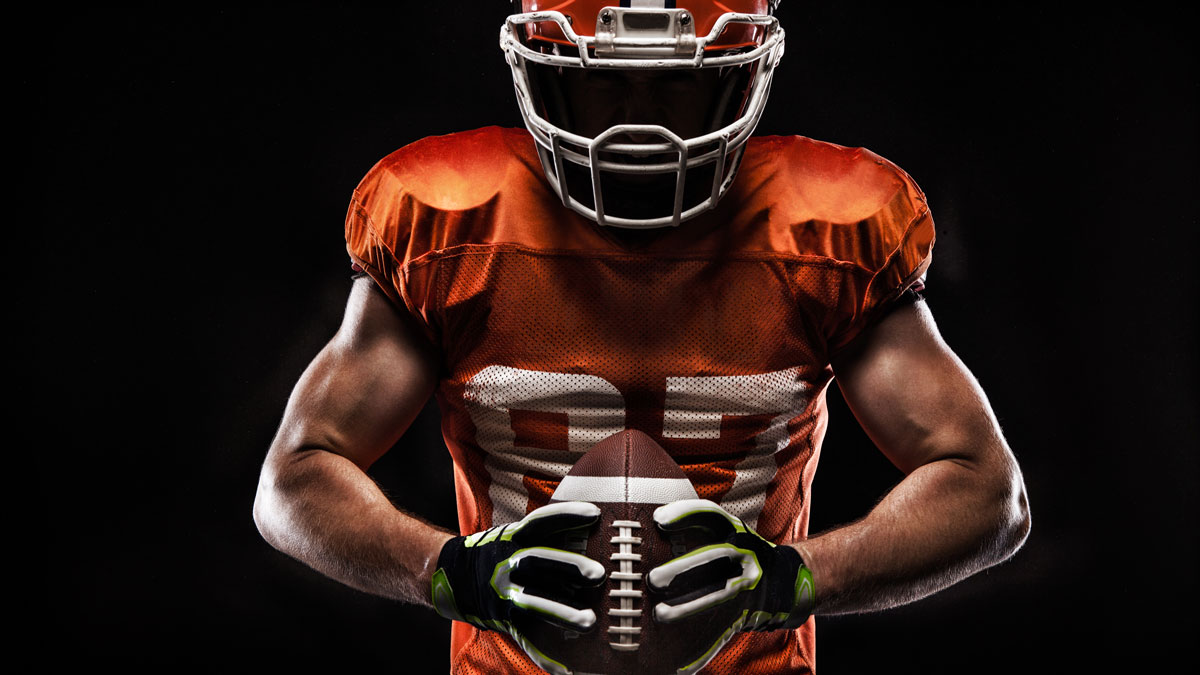In June of 2020, Florida Governor Ron DeSantis signed a bill that would allow student-athletes to capitalize on their name, image, and likeness (“NIL,” for short).
Senate Bill 646, which goes into effect on July 1, 2021, makes it legal in Florida for student-athletes to earn compensation during the course of their college careers without jeopardizing their NCAA eligibility. In fact, the law prohibits schools from revoking an athlete’s scholarship, or reducing the amount of financial aid a player receives from the school during the course of their college playing days, should the athlete decide to capitalize on the NIL legislation.
What does this mean for the current student athlete? For the time being, it’s a bit murky. Although the NCAA outlined a plan for athletes to earn compensation for use of their NIL, those plans were delayed this past January. And even though Congress introduced a bill last month that would make NIL compensation federal law, one of the sponsors of that bill believes that any action taken on the federal legislation would have to wait at least six months.
So what does this mean moving forward? Right now, a student-athlete is unable to earn any income based on their NIL. But if the legislation becomes effective – and the NCAA moves forward with a plan to adopt NIL rules – there would be three main ways a student could earn money during the course of his or her college athletic career:
- Personal Appearances. The NIL legislation would allow a player to charge fees and accept payment for signing his or her autograph at an organized event.
- Product Endorsements. If a player wishes to endorse a certain product, a business could pay the athlete money to appear in commercials and other media.
- Social Media. Social media accounts for athletes are huge. Trevor Lawrence, who won a national championship with Clemson University in 2018 and is widely expected to be the #1 overall pick in the NFL Draft in April, currently has 740,000 Instagram followers. Businesses will view such a large audience as an attractive way to get their products in front of those who follow Lawrence – and other athletes like him – which could provide a lucrative opportunity for a popular player if the NIL legislation passes.
There would obviously be certain limitations placed on an athlete’s ability to earn. For example, preliminary discussions with the NCAA’s guidelines would prevent a student-athlete from displaying school logos or conference affiliations during any endorsement activity. Additionally, schools and universities would be prohibited from paying student-athletes NIL compensation, which would almost certainly be considered an illicit recruiting tactic.
It also remains to be seen whether an athlete could endorse a product that competes with any brand licensing agreement the athlete’s school already has in place. The University of Miami Hurricanes signed a 12-year merchandising deal with Adidas back in 2015. If a Hurricane player wanted to endorse a competing product – say, Nike or Under Armour – future NCAA guidelines might try to stop it.
Still, the tide is turning, as is public opinion on the issue. Soon enough, student-athletes will be able to capitalize on their athletic popularity in order to earn money during their college careers beyond what they receive in financial aid from the school.
AXS Law Group has a committed team of lawyers ready and able to assist in navigating the tricky world of NIL legislation as it currently stands. Keep checking back here for more articles and posts on the status of the various forms of NIL legislation, what it means for you as a college athlete, and how we might be able to help.











 Deering Estate
Deering Estate
 Massage Envy South Miami
Massage Envy South Miami
 Calla Blow Dry
Calla Blow Dry
 My Derma Clinic
My Derma Clinic
 Sushi Maki
Sushi Maki
 Sports Grill
Sports Grill
 The Healthy Kitchen
The Healthy Kitchen
 Golden Rule Seafood
Golden Rule Seafood
 Malanga Cuban Café
Malanga Cuban Café

 Kathleen Ballard
Kathleen Ballard
 Panter, Panter & Sampedro
Panter, Panter & Sampedro
 Vintage Liquors
Vintage Liquors
 The Dog from Ipanema
The Dog from Ipanema
 Rubinstein Family Chiropractic
Rubinstein Family Chiropractic
 Your Pet’s Best
Your Pet’s Best
 Indigo Republic
Indigo Republic




 ATR Luxury Homes
ATR Luxury Homes


 2112 Design Studio
2112 Design Studio
 Hamilton Fox & Company
Hamilton Fox & Company
 Creative Design Services
Creative Design Services
 Best Pest Professionals
Best Pest Professionals
 HD Tree Services
HD Tree Services
 Trinity Air Conditioning Company
Trinity Air Conditioning Company
 Cisca Construction & Development
Cisca Construction & Development
 Mosquito Joe
Mosquito Joe
 Cutler Bay Solar Solutions
Cutler Bay Solar Solutions


 Miami Royal Ballet & Dance
Miami Royal Ballet & Dance
 Christopher Columbus
Christopher Columbus
 Pineview Preschools
Pineview Preschools
 Westminster
Westminster
 Carrollton
Carrollton
 Lil’ Jungle
Lil’ Jungle
 Frost Science Museum
Frost Science Museum
 Palmer Trinity School
Palmer Trinity School
 South Florida Music
South Florida Music
 Pinecrest Orthodontics
Pinecrest Orthodontics
 Dr. Bob Pediatric Dentist
Dr. Bob Pediatric Dentist
 d.pediatrics
d.pediatrics
 South Miami Women’s Health
South Miami Women’s Health

 The Spot Barbershop
The Spot Barbershop
 My Derma Clinic
My Derma Clinic




 Miami Dance Project
Miami Dance Project

 Rubinstein Family Chiropractic
Rubinstein Family Chiropractic
 Indigo Republic
Indigo Republic

 Safes Universe
Safes Universe
 Vintage Liquors
Vintage Liquors
 Evenings Delight
Evenings Delight





 Atchana’s Homegrown Thai
Atchana’s Homegrown Thai
 Baptist Health South Florida
Baptist Health South Florida

 Laser Eye Center of Miami
Laser Eye Center of Miami
 Visiting Angels
Visiting Angels
 OpusCare of South Florida
OpusCare of South Florida

 Your Pet’s Best
Your Pet’s Best





 HD Tree Services
HD Tree Services
 Hamilton Fox & Company
Hamilton Fox & Company


 Creative Design Services
Creative Design Services